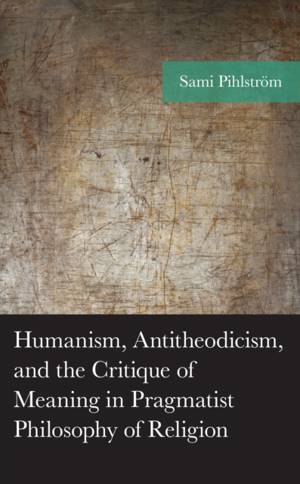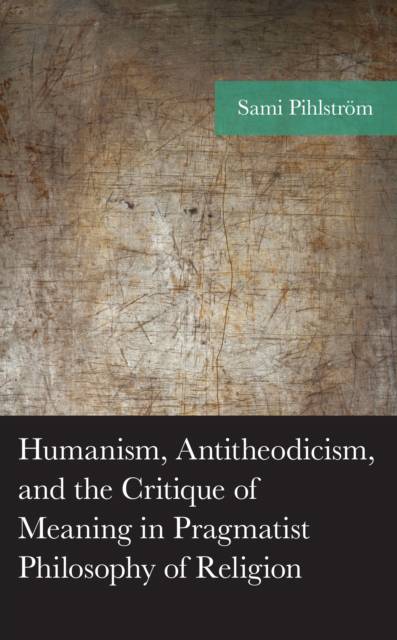
- Afhalen na 1 uur in een winkel met voorraad
- Gratis thuislevering in België vanaf € 30
- Ruim aanbod met 7 miljoen producten
- Afhalen na 1 uur in een winkel met voorraad
- Gratis thuislevering in België vanaf € 30
- Ruim aanbod met 7 miljoen producten
Zoeken
Humanism, Antitheodicism, and the Critique of Meaning in Pragmatist Philosophy of Religion
Sami Pihlström
€ 186,95
+ 373 punten
Omschrijving
Humanism, Antitheodicism, and the Critique of Meaning in Pragmatist Philosophy of Religion develops a distinctive approach to pragmatist philosophy of religion, and more generally to pragmatist investigations of the human search for meaning, by emphasizing what may be considered two closely interrelated main features of this tradition: humanism and antitheodicism. Humanism here emphasizes the need to focus on religion as a human practice within human concerns of meaningfulness and significance, as distinguished from any metaphysical search for cosmic meaning. Antitheodicism, in turn, stands for the refusal to accept any justification, divine or secular, for the experiences of meaninglessness that individuals undergoing horrendous suffering may have. Developing a critical form of pragmatism emphasizing these ideas, Sami Pihlström explores the relations between pragmatism and analytic philosophy in the philosophy of religion, especially regarding the question of religious meaning, as well as the significance of literature for philosophy of religion, with particular emphasis on William James's pragmatism.
Specificaties
Betrokkenen
- Auteur(s):
- Uitgeverij:
Inhoud
- Aantal bladzijden:
- 256
- Taal:
- Engels
- Reeks:
Eigenschappen
- Productcode (EAN):
- 9781666926279
- Verschijningsdatum:
- 22/03/2023
- Uitvoering:
- Hardcover
- Formaat:
- Genaaid
- Afmetingen:
- 152 mm x 229 mm
- Gewicht:
- 544 g

Alleen bij Standaard Boekhandel
+ 373 punten op je klantenkaart van Standaard Boekhandel
Beoordelingen
We publiceren alleen reviews die voldoen aan de voorwaarden voor reviews. Bekijk onze voorwaarden voor reviews.







